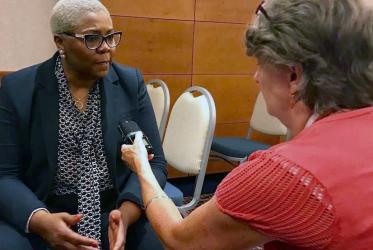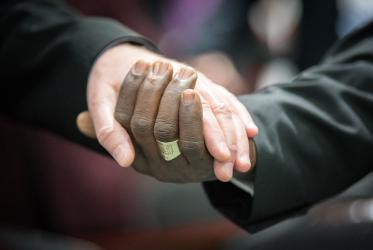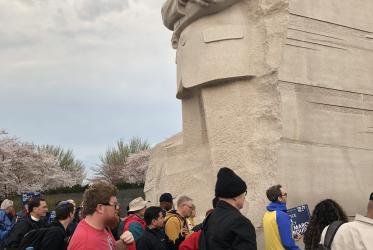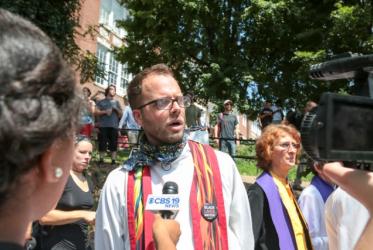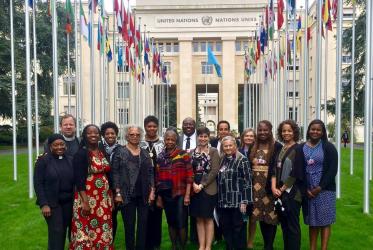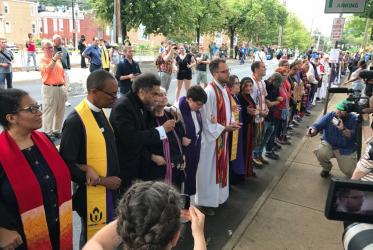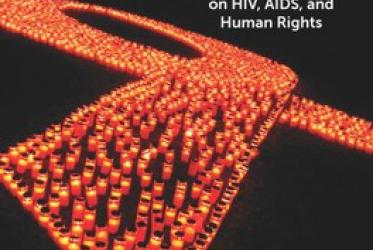Displaying 41 - 60 of 70
21 September 2018
WCC developing toolkit for health-promoting churches
02 August 2018
“Dear white Christians: what now?”
05 April 2018
Show up in fight against racism, is white American pastor’s plea
14 February 2018
“The work of truth-telling has to happen”
28 September 2017
Orthodox bishops in USA condemn racist violence
31 August 2017
Presbyterian leaders: racism in USA is “pernicious poison”
31 August 2017
In Charlottesville, can “the power of love” prevail?
14 August 2017
UN discussion focuses on women, HIV and property rights
21 March 2017
WCC book featured in UN discussion on gender, religions and health
16 September 2016
Creation, unity and hope focus of WCC greeting in USA
06 September 2016
